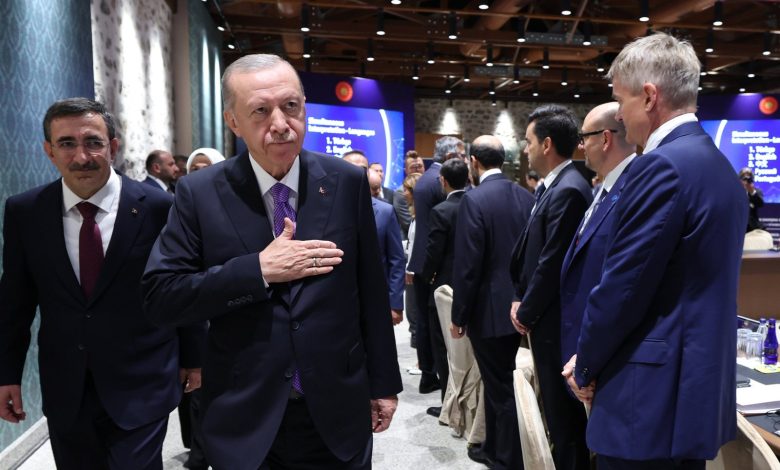Saudi company considering $5B investment in Türkiye: VP

A Saudi-owned company is planning to invest as much as $5 billion (TL 170.91 billion) in Türkiye, focusing on the energy and other sectors, Vice President Cevdet Yılmaz said Sunday.
Yılmaz’s announcement came after Türkiye brought together top business executives and financial institutions at a major investment conference over the weekend.
Türkiye has started attracting greater investor interest after implementing an economic policy U-turn following a general election in May 2023, reversing years-long loose policy and delivering aggressive monetary and fiscal tightening.
“There is a notable shift in both portfolio and direct investments in Türkiye. We will see even more results of this in the upcoming period,” Yılmaz said during an interview with private broadcaster Kanal 7.
President Recep Tayyip Erdoğan chaired on Saturday the 10th meeting of the Investment Advisory Council, the first since 2016, and addressed major companies from different sectors, including energy, automotive, technology, asset management, financial services, transportation and telecommunications.
Yılmaz said he saw a strong interest from investors during the high-profile event. He stressed the government’s economic policies since last year’s polls have gained confidence.
“A Saudi-owned company has expressed its intention to invest $5 billion in Türkiye’s energy and other sectors,” Yılmaz said, without naming the firm, as he also recalled officials’ engagements with investors in the United States.
“Wherever we go, we see significant interest and attention from global investors. Türkiye is a country that’s being seriously discussed, and we will see the results of this growing attention.”
Yılmaz highlighted the need to boost direct international capital investments that will create jobs and bring new technologies.
He stated that direct investments in Türkiye had accelerated in the past three months, with over $6 billion in direct investment inflows in the past seven months.
“We are aiming to surpass $10 billion by year’s end and increase our global market share in FDI from 1% to 1.5%,” he added.
Yılmaz reassured that foreign investors remain focused on Türkiye’s economic fundamentals rather than internal politics.
Investors, he said, recognize Türkiye’s stability, strategic location, dynamic workforce and improvement of its international image.
Türkiye’s favorable position has been bolstered by credit upgrades from three global rating agencies this year.
“Our investment image and perception are improving. Türkiye will meet new investors, attracting interest not only from China but also from Latin America, the Gulf, the Far East, Europe and the U.S. We must seize this opportunity and make the most of it,” said Yılmaz.
Yılmaz also addressed concerns over inflation, which had surged to as high as 75.5% in May but has since seen a significant drop and eased to 52% in August.
Yılmaz expects inflation to fall to around 41.5% by year’s end and continue declining to below 20% in 2025.
Regarding fiscal discipline, he said Türkiye would end this year with a budget deficit of below 5% despite allocating TL 2.5 trillion for reconstruction of the southeastern region struck by last year’s devastating earthquakes.
The gap stood at 5.2% last year, and the government aims to bring it down to 3% next year.
Yılmaz also highlighted the improvement in the current account balance.
“Last year, the current account deficit was around 6%, close to $60 billion. Today, we see exports increasing, imports decreasing, tourism revenues performing well, and the current account deficit is around 2%,” he noted.
“By the end of the year, it is expected to drop to 1.7%.”






